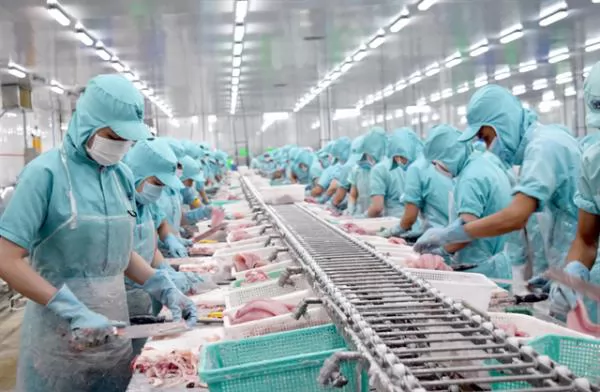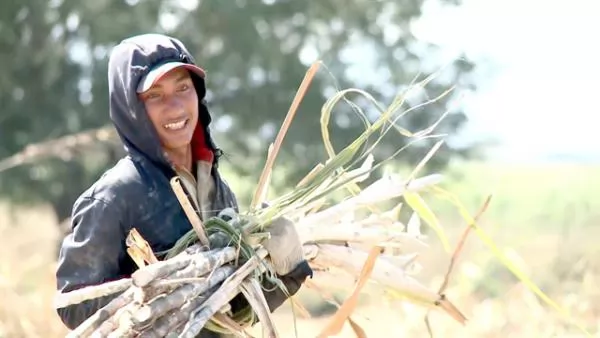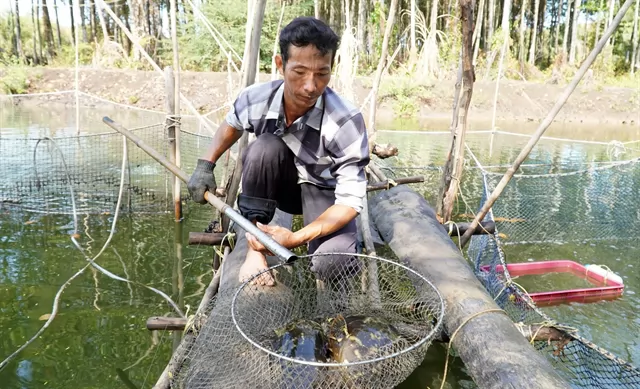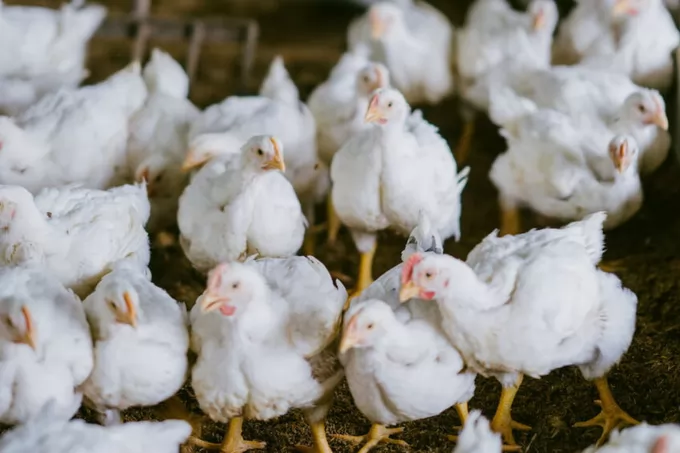Tra fish exporters struggle with production, exports on pandemic, lack of water

Tra fish exports have been hit by the Covid-19 outbreak as well as prolonged saltwater intrusion in rivers in the Cửu Long (Mekong Delta) region. - VNA/VNS Photo
HCM CITY – Tra (pangasius) fish farming has been hit by a double whammy of Covid-19 and prolonged saltwater intrusion in rivers in the Cửu Long (Mekong Delta) region, according to the Việt Nam Association of Seafood Exporters and Producers (VASEP).
Many pangasius-farming households and export firms have suffered in recent months as fish prices dropped steeply and export markets were stagnant.
Since the beginning of this year exports of the country’s two main seafood products, tra fish and shrimp, have been down sharply.
Tra exports have been particularly impacted by the Covid-19 pandemic.
In the first half of this year they were down 31 per cent to US$612.3 million, according to VASEP. Shipments to all 10 leading markets decreased from the same period last year, by 15.5 per cent in the case of China, 24.4 per cent to the US and 36.6 per cent to the EU.
Declining new orders, high inventories and low export prices have caused profits of businesses and fish-farming households to plummet, with many even suffering losses, VASEP said.
Lê Vĩnh Trọng, a tra fish farmer in An Giang Province’s Châu Thành District, said normally the fish is harvested to sell to export processing plants when it reaches a weight of 0.8-1kg.
However, his fish are now more than 10 months old and weigh 1.8kg but there are no buyers.
He had to run around before finding a plant that agreed to buy the fish for VNĐ17,700-VNĐ18,000 per kilogramme, but on credit, prices at which he lost VNĐ5,000-VNĐ6,500 per kilogramme.
The Đồng Tháp Province-based Vĩnh Hoàn Company (VHC) announced that second quarter profit had halved year-on-year to VNĐ215 billion ($9.2 million).
The half-yearly profit too halved to less than VNĐ368 billion.
VHC is considering investment strategies to increase profits through value chains. Besides its traditional tra exports, it is also eyeing an increase in sales of fish fat and fish meal by 20 per cent and collagen and gelatin products by 60 per cent this year, thanks to the commissioning of a new factory.
Nam Việt Corporation (ANV) saw second-quarter profit decrease by 79 per cent year-on-year to VNĐ32 billion, its lowest since the beginning of 2017.
In the first half of this year net revenues dropped by 14 per cent while post-tax profits fell a whopping 79 per cent to VNĐ75.5 billion.
The company forecasts full-year profit to fall by 72 per cent to VNĐ200 billion.
Exports fell by 52 per cent to VNĐ399 billion in the second quarter, but, thanks to its focus on the Vietnamese market, domestic sales rose 113 per cent to VNĐ485 billion, surpassing exports for the first time.
ANV is seeking to further exploit domestic demand by tying up with the distribution chain of VinEco belonging to Masan Group.
Diversifying products and export markets is helping create growth momentum and remove difficulties for tra fish exports, VASEP said. – VNS
Maybe you are interested

Life gets sweeter for farmers on rocky land
GIA LAI — Hbông Commune is located in a rocky area, and after many years of struggling to find crops that could be adapted to the arid land, local farmers decided on sugarcane.

Mekong Delta breeds aquatic creatures in forests to mitigate climate change effects
Breeding shrimp and other aquatic species in mangrove forests in the Cửu Long (Mekong) Delta both offers a steady income to households protecting forests and improves conservation.

India: Antibiotics in poultry is a growing concern
The inability of poultry breeding companies to prevent chicks from being infected with a bacteria is forcing producers to turn to antibiotics at an early stage.





